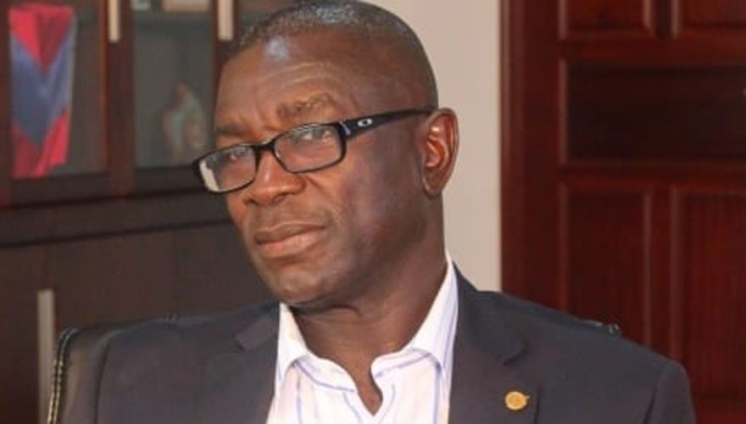The co-Founder of defunct UT Bank, Prince Kofi Amoabeng, says the reason behind the closure of the bank might have partly been a political decision.
According to him, the Central Bank’s decision to collapse UT Bank might have been informed by his decision not to align with any political party.
Speaking on Citi TV, the former CEO stated that UT Bank could have received a bailout just like some other banks, but his lack of a strong political backing gave way for the Central Bank to close it down.
He told the host of the show, Bernard Avle, that his neutral pose had made him look anti-government no matter the governing political party.
“I don’t belong to any party…The interesting thing is that depending on who is speaking, they push you to the other side. Throughout the whole UT thing, depending on who is in power, I am [considered as being] on the other side.”
Though he admits that his bank was not faring well at the time of the banking sector cleanup in 2017, the ruling government could have done something about the situation to save the bank and the jobs of those working for it.
“The bank wasn’t doing that well at the time but the way the government acted, some banks were helped, some banks were closed. That is what irritates me,” he stated.
He added that he was disappointed by the decision of the ruling government and the Central Bank considering the immeasurable contribution the UT brand had made to Ghana’s financial sector.
“At UT, we created a Ghanaian brand which was respected internationally so to come to power to kill a local brand which is admired and used internationally [wasn’t the best]… You can bail it out and that is common [practice]. Initially, that was what was happening but that was the NDC time… For me, not because of my personal interest but I think for the country, we should have bailed it out,” he said.
Prince Amoabeng is currently in court hoping the court compels the Central Bank to reverse their revocation of UT Bank’s license.
He has petitioned the Legislature to conduct an investigation of the conduct of the Central Bank and Ghana Stock Exchange (GSE) for the revocation of UT Bank’s license and delisting the bank without due regard to the rules of Administrative Justice guaranteed under Article 23 of the 1992 Constitution.
The disgruntled CEO also wants Parliament to direct the restoration of his bank’s license and the remedying of the harms done to the shareholder’s property right as a result of the conduct of the BoG.
Mr. Amoabeng has been accused by the state of mishandling depositors’ cash by engaging in fictitious and unlawful activities which led to the collapse of UT Bank in 2017.
Latest Stories
-
CHAN 2024Q: ‘It’s still an open game’ – Didi on Ghana’s draw with Nigeria
2 minutes -
CHAN 2024Q: Ghana’s Black Galaxies held by Nigeria in first-leg tie
1 hour -
Dr Nduom hopeful defunct GN bank will be restored under Mahama administration
2 hours -
Bridget Bonnie celebrates NDC Victory, champions hope for women and youth
2 hours -
Shamima Muslim urges youth to lead Ghana’s renewal at 18Plus4NDC anniversary
3 hours -
Akufo-Addo condemns post-election violence, blames NDC
3 hours -
DAMC, Free Food Company, to distribute 10,000 packs of food to street kids
4 hours -
Kwame Boafo Akuffo: Court ruling on re-collation flawed
4 hours -
Samuel Yaw Adusei: The strategist behind NDC’s electoral security in Ashanti region
4 hours -
I’m confident posterity will judge my performance well – Akufo-Addo
5 hours -
Syria’s minorities seek security as country charts new future
5 hours -
Prof. Nana Aba Appiah Amfo re-appointed as Vice-Chancellor of the University of Ghana
5 hours -
German police probe market attack security and warnings
5 hours -
Grief and anger in Magdeburg after Christmas market attack
5 hours -
Baltasar Coin becomes first Ghanaian meme coin to hit DEX Screener at $100K market cap
6 hours

